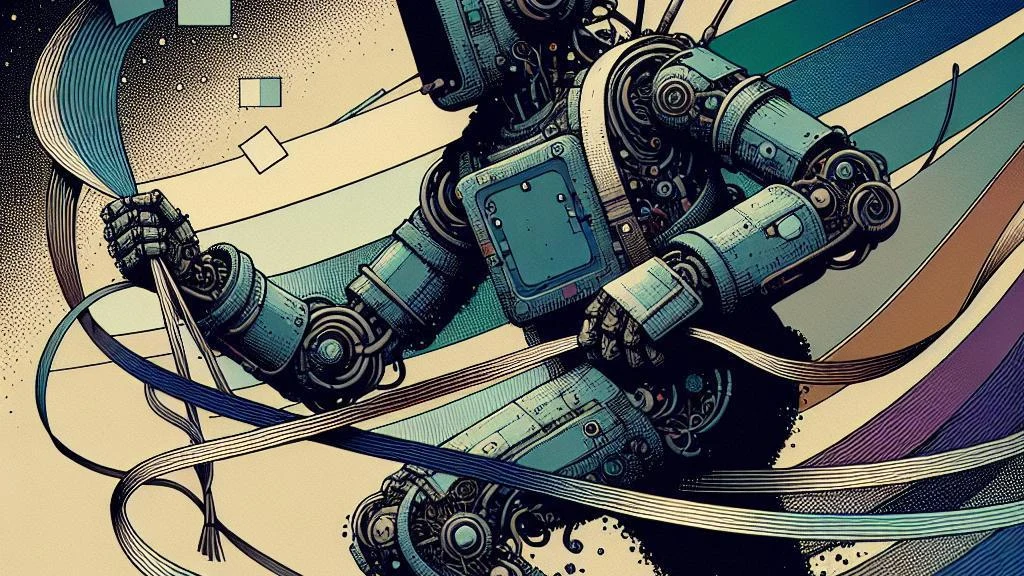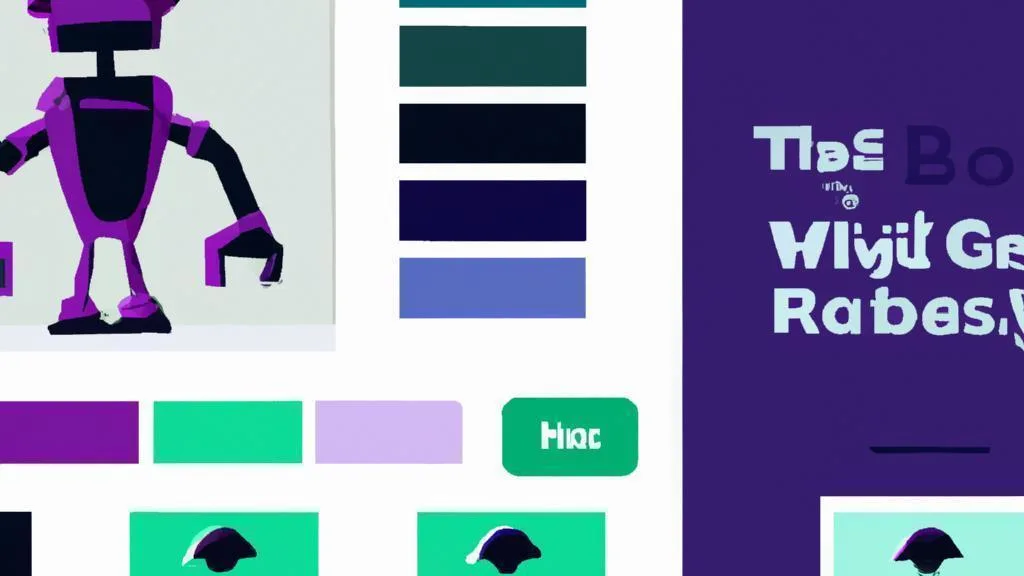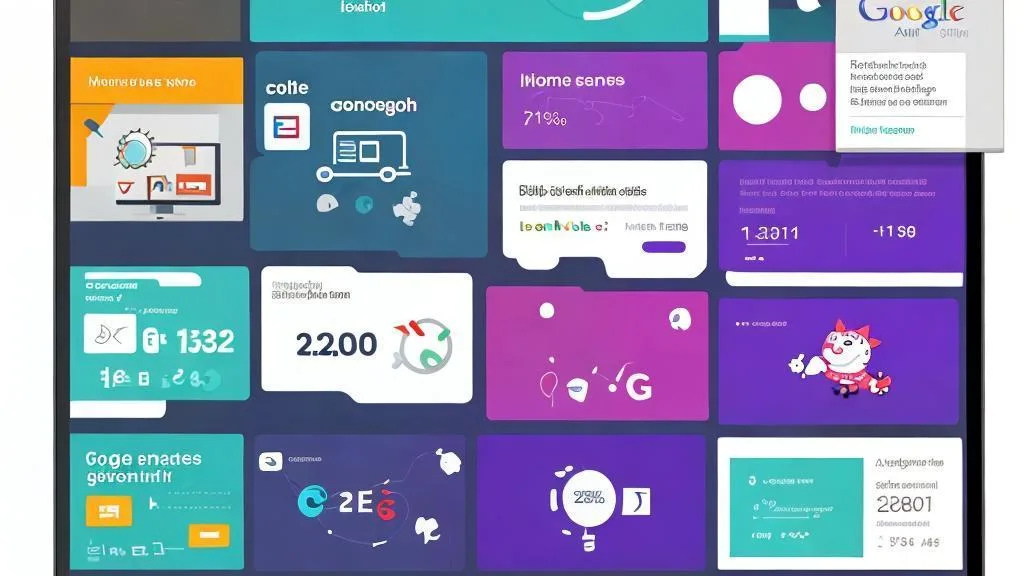How can I use AI to increase my social media followers?
In today's digital age, social media has become an essential platform for individuals and businesses …

You're at the heart of a fascinating digital transformation, and it's time we had a talk - one that could be a game changer for your business. Yes, that's right. We're diving head-first into the riveting world of AI. But hang on to your hats because we're not just talking about how you can use AI for content creation. Oh no, we're delving deep, exploring the twisty labyrinth of copyright law and how it intertwines with AI in the world of SEO and website traffic. It's uncharted territory, but don't you worry. I'll be your trusty guide. Ready to step into the future? Great! Let's dig in.
In the digital age, the technology that powers Artificial Intelligence (AI) has grown in popularity and use, especially in content creation. This leads us to an intriguing question. Can AI own the copyright? While AI has already proven its ability to create impressive results, copyright ownership remains a complex issue in this context.
While AI technology's rapid development brings significant opportunities, the associated legal frameworks have yet to catch up. There's no specific legal provision in most countries that accounts for AI-generated works, which forms the crux of the problem.
Broadly speaking, for a work to be protected by copyright, in countries like Australia, China, the EU, and the UK, it must be “original”. This originality signals human intellectual effort or free and creative choice. Given these requirements, copyright laws worldwide default to human authors for assigning ownership.
Although there isn't an express provision requiring the creator to be human, work is generally assumed to be "original" when it represents a human creator's expression of their imaginative choices, not just a mere copy. This raises considerable ambiguity when it comes to AI-generated works.
Current copyright laws necessitate human intercession. What does this mean for creators and businesses?
Works generated using AI span a broad spectrum. On one side, AI outputs are created from simple user prompts, while on the other side, results are developed through a vigorous process in which human authors work in tandem with an AI system.
For copyright protection to exist, a human must have exerted some control over the creative process—be it via active collaboration with AI systems or in the selection and refinement of AI-generated outputs. The key factor in determining copyright ownership lies in the level of human intellectual effort involved in the creation.
In practice, it's challenging to determine and quantify the intellectual effort of humans in the creation process, particularly in cases where AI is given a significant degree of autonomy in producing results.
As AI technology advances, whether AI-generated works can meet copyright's originality requirements arises, causing potential ripple effects on copyright law interpretation and businesses.
A significant concern for businesses investing in AI systems to generate unique outputs is safeguarding their investments through intellectual property laws. The uncertainty around AI copyright ownership may present an obstacle to achieving this.
Despite current legal obstacles, the growing influence of AI systems is apparent. For instance, Microsoft created an AI-generated artwork entitled "Next Rembrandt," which imitates the painting style of Rembrandt. Another example is the annual AI song contest hosted by Dutch public broadcaster VPRO for “Eurovision-like” songs generated using AI.
Such instances demonstrate AI's creative potential and its implications for businesses. As AI continues to make strides in content creation, it forces a reevaluation of existing copyright laws. Until such laws evolve, companies and creators must tread cautiously, ensuring they maintain robust human involvement in the creative process to preserve copyright protection.
The UK has taken an innovative approach with provisions for computer-generated works. The Copyright Designs and Patents Act 1988 of UK law secures copyright protection for computer-generated works where no human creator exists, marking a significant step towards addressing AI contributions in creative works.
The Act identifies the author of AI-generated work as “the person by whom the arrangements necessary for the creation of the work are undertaken", providing a layer of protection lasting 50 years from the date of the work's creation.
Despite the advances, the requirement for an author's originality remains, posing challenges for fully acknowledging AI's creative contributions.
While the frontier of AI ownership of copyright remains unsettled, the involvement of a human in the creative process is undeniably crucial. It's not enough for the content to be original; it must also reflect human intellectual effort.
We can also expect ongoing legal debates about interpreting laws surrounding copyright, originality, and AI. As AI technologies advance, so must our legal frameworks. And while the current laws may pose challenges, they also open doors for innovation, prompting us to reimagine and redefine what creativity and originality mean in the era of artificial intelligence.
Until such changes are made in legislation, businesses and creators must ensure enough human intervention in the AI creative process. The era of AI demands both advancements in technology while calling for a reformation in our understanding of creativity and legal practices.
As we wait for the legal landscape to evolve, it is impossible to ignore the incredible opportunities AI technologies bring to redefine creativity. While a clear model of authorship and ownership for AI-generated content may be a concept of the future, it is a future that seems highly probable, given the rapid evolution of AI capabilities.
That was a wild ride - AI, copyright laws, originality and human intervention! To sum things up in a nutshell, our tech-filled world is breaking barriers, introducing innovative ideas and redefining creativity. But with great power comes great responsibility. The law needs a revamp to keep up with this mad-max speed of technological advancement, especially when AI is shuffling the cards. So while we wait for the legal world to catch up, we, the change-makers, must tread carefully.
Regardless of the uncertainties and challenges in the current copyright laws, we can't ignore the intoxicating allure of AI and its endless possibilities. Let's keep exploring, creating and innovating with a hint of caution and a dash of human touch. Remember, we're not just shaping our businesses but potentially defining new norms for the future. So, until the law paints a clearer picture, let's make hay while the sun shines. Here's to chart a brave new world together!
Some other posts you may like

How can I use AI to increase my social media followers?
In today's digital age, social media has become an essential platform for individuals and businesses …
August 16, 2023
Read More
Using Bongocat as your central marketing tool
The power of AI in content creation and Google ads to drive traffic to your …
August 16, 2023
Read More